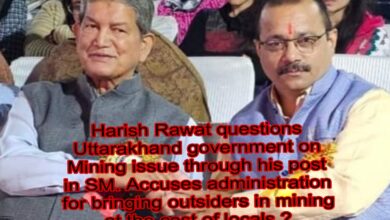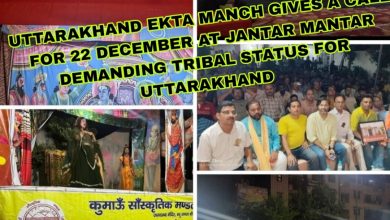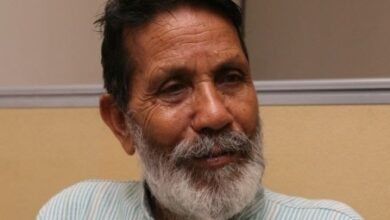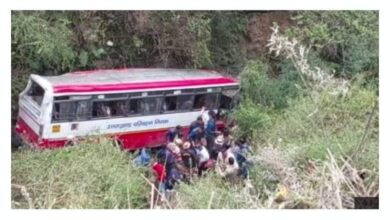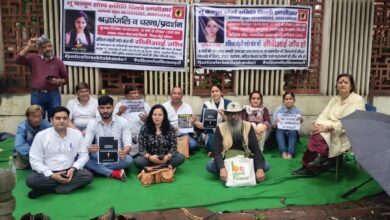Panel Discussion on Constitutional Right Against the Adverse Effect of Climate Change
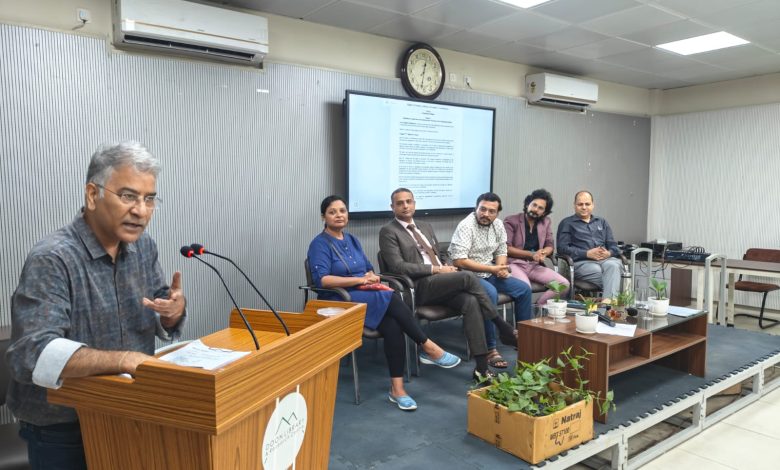


Dehradun: A thought-provoking panel discussion on the topic “Constitutional Right Against the Adverse Effect of Climate Change” was successfully held today at the Doon Library and Research Centre, as part of the Uttarakhand Idea Exchange on Climate and Constitution. The event, organised in collaboration with the Social Development for Communities (SDC) Foundation, brought together experts from diverse fields to deliberate on the implications of the recent Supreme Court judgement in MK Ranjitsinh v. Union of India (2024), which recognized fundamental rights of citizens against the adverse effects of climate change.
The event commenced with a welcome address by Chandra Sekhar Tiwari, Program Associate of Doon Library, who briefly introduced the Uttarakhand Idea Exchange initiative and welcomed the esteemed panellists.
The panel discussion was moderated by Gautam Kumar, Assistant Professor at UPES School of Law and Fellow at the SDC Foundation. Gautam set the context by discussing the Supreme Court’s 2021 order regarding the Great Indian Bustard and the importance of making power transmission lines underground. He then moved to the 2024 MK Ranjitsinh vs. Union of India judgement, emphasising the Court’s recognition of climate change as a constitutional concern and its implications for environmental rights.
Aman Rab, Legal Advisor to the Uttarakhand Pollution Control Board, offered insights into the legal dimensions of the judgement. He explained that the Supreme Court did not create a new right but rather recognized an existing right under Articles 14 and 21 of the Constitution. He noted the challenges the state would face in implementing these rights but lauded the judgement as a positive step for climate litigation in India.
Varsha Singh, a senior journalist, provided a ground-level perspective on climate change, especially its impact on mental health, particularly in schoolchildren. She also highlighted the gendered effects of climate change, noting that women are disproportionately affected. Through her reporting, she emphasised the media’s role in bridging information gaps and fostering greater awareness of environmental rights.
Dr. Harsh Dobhal, Visiting Professor at Doon University, spoke about the community impacts of the recognized right, emphasising how different social groups are disproportionately affected by climate change. Drawing from his field research, he highlighted the increasing necessity of cooling systems in Uttarakhand, where heat waves are becoming more common. He also focused on the need for effective climate mitigation and adaptation strategies.
Aditya Rawat, Assistant Professor at UPES, took an overarching view of the judgement, pointing out its anthropocentric approach. He noted the Court’s departure from its earlier ecocentric jurisprudence, especially given that the case concerned the protection of a bird species. Aditya also discussed how the judgement failed to address the rights of animals and nature, as well as the identity crisis faced by Indigenous communities due to the climate crisis.
The audience, comprising students from various universities, climate practitioners, civil society members, lawyers, and professors, engaged deeply with the panellists. The discussion extended into questions about tourism’s contribution to climate vulnerability and the role of the government in fostering collaboration with civil society to address these issues.
In conclusion, Anoop Nautiyal, Founder of the SDC Foundation, summarised the key points of the discussion and delivered the vote of thanks. He acknowledged the panellists for their insightful contributions and expressed gratitude to the Doon Library for co-hosting the event. Anoop congratulated all participants for their active engagement in the discourse, underscoring the need for continued dialogue on climate-related constitutional rights in Uttarakhand.
SP Subudhi, Director, State Environment Conservation and Climate Change Directorate (SECCCD), Government of Uttarakhand, Prof. HC Purohit, Dr. SP Sati, Dr. Rajendra Kathait, Vaishali Singh, Jaya Singh, Rajendra Koshiyari, Arunima Naithani, Jaya Singh, Ekta Sati, Jagmohan Mediratta, Abhinav Singh, Brig Khati (Retired), Prateek Panwar, Sanjeev Srivastava, Paramjit Singh Kakkar, Hari Raj, students from Doon University, Doon Library, UPES, Graphic Era and many others were present during the panel discussion.

